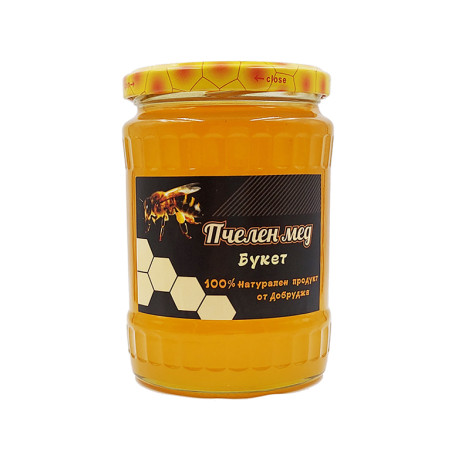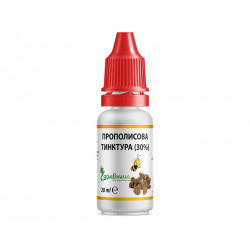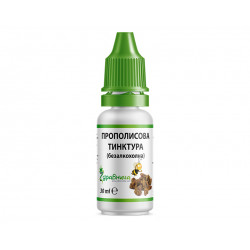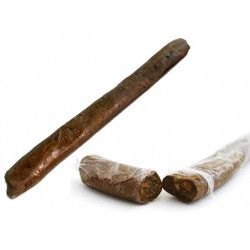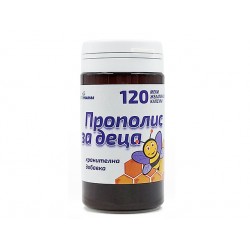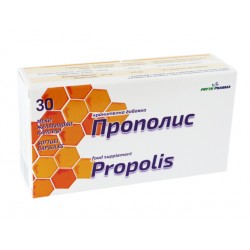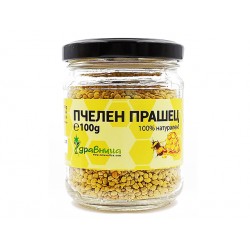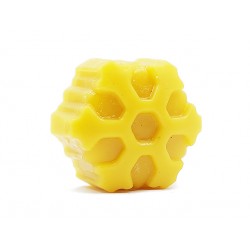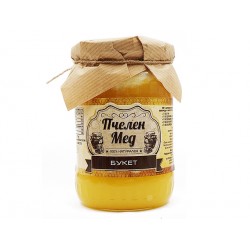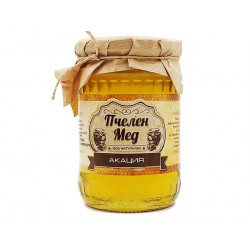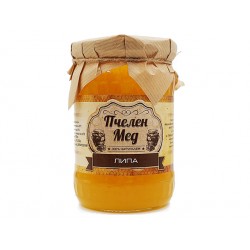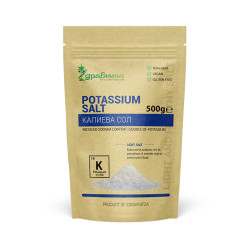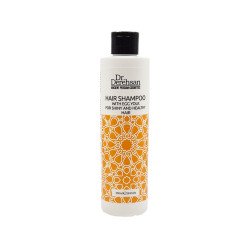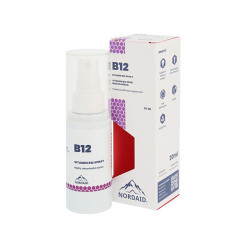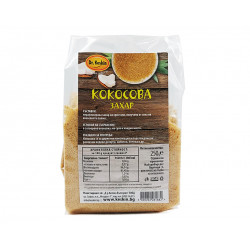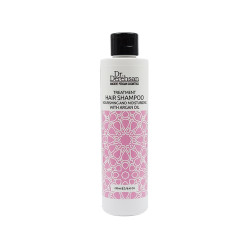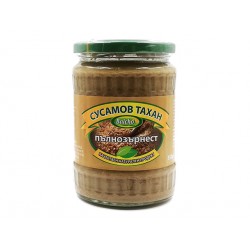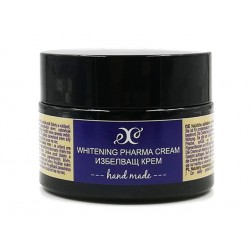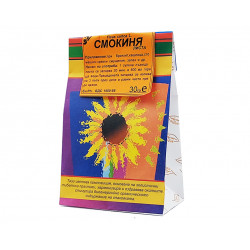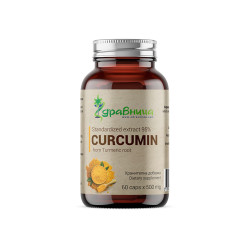* Find a product for a specific disease such as write his name (eg .: Diabetes)
No products
Bulgarian Honey, Bouquet from Dobruja, 720 g
Pure, Bulgarian honey, produced in Dobruja. Strengthens the immune system, acts antibacterial and anti-inflammatory.
Package Quantity: 720 g
Origin: Bulgaria
Ingredients: Pure Bulgarian honey
Shipping Weight: 1.100 kg
Suitable for: Adults


Product information
Bee honey is a food viscous, liquid or crystallized product produced by honey bees from the nectar of flowers or secretions from or on the living parts of plants that the bees collect, transform, combine with specific substances that they secrete, store and allow to mature in wax cakes. The enrichment of honey with enzymes leads to extracorporeal (extracorporeal) digestion, as a result of which the amount of easily digestible monosaccharides increases, at the expense of disaccharides, pentoses, riboses and other carbohydrates present in the nectar.
Honey is a combination of sugars and other ingredients. As for carbohydrates, honey is mainly fructose (about 38.5%) and glucose (about 31%), making it similar to synthetically produced sugar syrup, which is about 48% fructose, 47% glucose, and 5% sucrose / crystal sugar/. Honey also contains other carbohydrates, traces of some vitamins and minerals, enzymes, hormone-like substances, phytoncides, etc. Like all other food sweeteners, honey is mainly sugars and not a significant source of vitamins and minerals. Honey contains trace amounts of compounds believed to be antioxidants, including chrysin, pinobanksin, vitamin C, catalase, and pinocembrin. The exact composition of the honey depends on the flowers that the bees have pollinated.
Natural Bulgarian Honey
Honey is considered natural if it has not been heated, not mixed, has no impurities from other foods and sweeteners (glucose, fructose, isosuite, glucose-fructose syrup) and which has not been obtained by processing sugar syrup with which the bees are fed honey harvest time.
The term "natural" is well-liked and widely used on the labels of commercial honey, but little of the honey on offer is truly "natural". If we have to refine the term, the most natural is honey in a honeycomb.
In second place in terms of value after it is pressed honey (practically not available commercially), followed by pressed honey, then centrifuged natural honey (limited and mostly available from beekeepers), in the next position is centrifuged melted honey (the most widely available copper).
Nectar sources can be identified by traces of pollen and spores in the raw honey. Because bees have an electrostatic charge, other small particles stick to them, so the same methods can be used in environmental studies for radioactive particles, dust or specific contaminants.
Biological properties:
Most microorganisms cannot grow in honey because of the low water activity (about 0.6). At the same time, honey may contain inactive endospores of the bacterium Clostridium botulinum, which can be dangerous for small children.
Honey also has a curative effect, which is due to its individual ingredients and their complex healing effect.
- Increases the immune defense of the body;
- Acts antibacterial, antimycotic, anti-inflammatory, hyposensitizing;
- It has a blood-forming, expectorant, regenerative, cardiotonic, pain-relieving, neurotonic, tonic, laxative and detoxifying effect on the body.
Application:
Honey is mainly used as a food product. It is a source of quickly released energy and easily digestible carbohydrates. With daily use, it has been proven to have a beneficial effect on the motor activity of the gastrointestinal tract and on the secretion of the stomach and intestines.
Bee honey is also used as a healing agent. It is used as a main or auxiliary remedy for the treatment of gastritis, as well as for altered stomach acidity. It has a healing effect in diseases of the respiratory system, as well as in inflammatory diseases of the skin and mucous membranes, which is due to the antibacterial effect of honey.
It is also used as a dietary and medicinal remedy for liver diseases, because it provides carbohydrates for the synthesis of glycogen.
Honey is not a regulated medicinal product, but above all a food with a specific dietary and medicinal effect. Bee honey is also used in cosmetics in the form of masks and creams, which also include other ingredients. The products have a softening and cleansing effect.
Ingredients:
100% pure honey - Bouquet.
Origin: Plenimir village, General Toshevo, Dobrich region, Bulgaria
Reg. Number: 95220050, under the control of Bulgarian Food Safety Agency.
Usage:
For direct consumption or use in various culinary products.
Unprocessed honey crystallizes over time. Decrystallization is carried out by heating a water bath to 45C.
Packing: 720 g in glass jar
Reviews
Products in the same category
Customers who bought this product also bought:
-
 Potassium salt, table salt substitute, Zdravnitza, 500 g
Potassium salt, table salt substitute, Zdravnitza, 500 g 4,70 €
-
 Hair shampoo with egg yolk for shiny hair, Dr. Derehsan, 250 ml
Hair shampoo with egg yolk for shiny hair, Dr. Derehsan, 250 ml 5,70 €
-
 Vitamin B12 Spray, Nordaid, 30 ml
Vitamin B12 Spray, Nordaid, 30 ml 15,54 €
-
 Natural soap with Bulgarian clay, Jasmine, Avia, 100 g
Natural soap with Bulgarian clay, Jasmine, Avia, 100 g -
 Coconut sugar, unrefined, Dr. Keskin, 250 g
Coconut sugar, unrefined, Dr. Keskin, 250 g 2,51 €
-
 Treatment hair shampoo with argan oil, Dr. Derehsan, 250 ml
Treatment hair shampoo with argan oil, Dr. Derehsan, 250 ml 5,70 €
-
 Sesame tahini, whole grain, Balcho, 550 g
Sesame tahini, whole grain, Balcho, 550 g 4,86 €
-
 Whitening Pharma Cream, Hristina, 40 ml
Whitening Pharma Cream, Hristina, 40 ml 6,14 €
-
 Fig (Ficus carica), dried leaves, Bilkaria, 30 g
Fig (Ficus carica), dried leaves, Bilkaria, 30 g 1,28 €
-
 Curcumin, standardized extract 95%, Zdravnitza, 60 capsules
Curcumin, standardized extract 95%, Zdravnitza, 60 capsules 19,63 €


